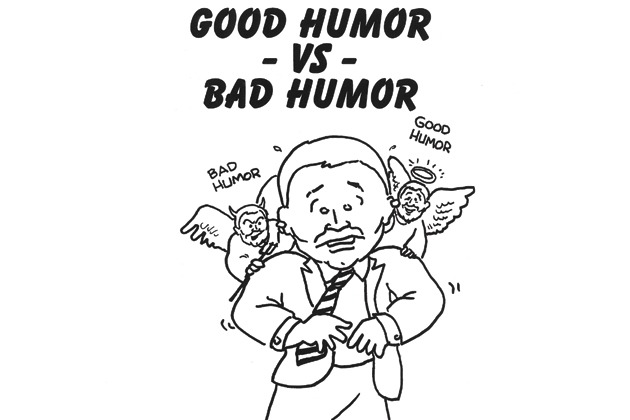As a professional speaker focused on the use of good humor at work, the question I hear most frequently is: “Can I say this or that at work and not get in trouble?”
Being a person who simply cannot thrive without fun in my life, I have paid special attention over the years to the delicate subject of good vs. bad humor at work. With my professional grass roots beginning in State and Federal Government, I have also experienced a variety of employers and positions in the non-government workplace prior to becoming a professional speaker. This wide spread and diverse personnel exposure has provided me with significant opportunity to identify how a sense of humor can serve to increase team orientation and productivity, while simultaneously observing which types of humor are actually disruptive to an individual, or destructive to the Team.
To help avoid a potentially hostile work environment, and/or complaints about your particular sense of humor, it helps if everyone understands and adheres to general, and specific, workplace humor rules and guidelines when interacting at the office.
Good Humor at Work Makes a Positive Difference
Achieving comprehension and proficiency in using good humor at work is quite simple. It starts with recognizing that work and home are two very different things and the humor we can use (without causing pain) in each environment is equally different.
For example, at home, or with your friends, you can always just walk away if you don’t like what you are hearing or seeing. In the public arena, you can choose not to go to a comedy club if the comedian uses language or jokes you find offensive. Point being, your personal time allows you the freedom to control your experiences.
This is not always the case at work, however. In your office, you can’t always “just walk away” when confronted with someone’s idea of ‘funny’… and if you did, your employer would probably think you have simply quit your job. Without the luxury of freedoms we enjoy in our personal time, the sense of powerlessness, anxiety or violation can arise. We don’t always get to choose who we work with or for and that can cause conflict. In fact, people routinely spend more dedicated, concentrated time with people at work then they do with friends or family.
How to Use Good Humor at Work
Feeling forced (or causing others to feel forced) into withdrawal as a result of bad humor at work is totally and easily avoidable.
1. Remember that we all make mistakes! It is vital that everyone always assumes the best–not the worst, when a bad humor situation arises. It is imperative to give others the benefit of the doubt and assume that the offending person is absent of malicious intent. I’ll delve deeper into this in future blogs.
2. Talk with your managers and coworkers to establish the grounds for good humor at work, and present these guidelines to everyone in your office. Being proactive in communication is key to preventing the appearance or escalation of bad humor situations.
3. Accept that humor is all around and inside each of us. Consistently sharing your respectfully delivered comments and feedback, while maintaining an active and sensitive awareness of how your sense of humor impacts those around you, will invariably serve well in developing and using good humor at work skills.
Remember, humor should enhance and never diminish anyone. Laughter becomes you…if you let it.
-Tim Gard, CSP, CPAE



